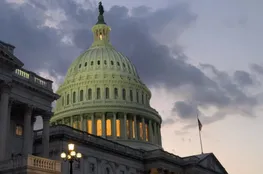A second term for Donald Trump as President could usher in significant changes for American energy sectors. During his previous term, President-elect Trump pledged ambitious goals, such as reducing U.S. energy prices by 50% within a year. This commitment was part of his broader agenda to make America energy independent and to foster economic growth through the deregulation of fossil fuel industries. Trump is expected to pursue more lenient policies for oil and natural gas companies, focusing on rolling back environmental regulations that some see as barriers to energy production.
These potential policy changes highlight a shift towards boosting traditional energy sources, possibly at the expense of renewable energy initiatives. By relaxing regulations, Trump's administration aims to increase oil and gas production, potentially generating more jobs and increasing American competitiveness in the global energy market. However, this approach may raise concerns about environmental impact and sustainability. Critics argue that such policies could prolong dependence on fossil fuels and delay the transition to cleaner energy technologies.
Patrick De Haan, head of petroleum analysis at GasBuddy.com, provides insights into what these shifts might mean for U.S. energy consumers. As regulatory constraints lessen, the expectation is that production costs for oil and natural gas could decrease, potentially leading to reduced prices at the pump. But the overall effect on energy prices can be influenced by numerous factors, including global oil markets and geopolitical events.
Therefore, while a second Trump term may benefit certain sectors of the energy industry in the short term by cutting operational costs and encouraging investment in fossil fuels, it remains to be seen how this will align with broader environmental and economic goals. The balance between freeing the market and addressing environmental concerns will be pivotal in shaping America’s energy policy in his tenure.
























